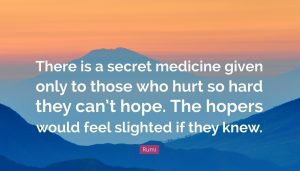《自律養生實踐家之旅335》 要命的仙丹

父母步入中老年後,長期服用阿斯匹靈預防心血管疾病。這個建議來自我在美國的叔叔,他與我父親同為台大醫科畢業,多年來習慣交換醫療觀點。
然而,這種觀點並不是被我以「身體視角」的理念推翻,而是被事實擊碎。阿斯匹靈引發消化道潰瘍的副作用早已廣為揭露,取而代之的,是另一種號稱「名藥」的斯達汀,卻帶來了更多、更沉重的副作用。
所謂「換湯不換藥」,在醫療領域裡根本沒有「湯」,只有藥,而且是不停的換藥。當年父母服用阿斯匹靈只是預防用途,明明沒有心血管疾病,卻因「年紀大了可能有風險」而先下手為強。
以我今天的認知回望當年父親的選擇,不得不承認,醫學教育對人體的理解依舊粗淺,而半世紀過去,人們的觀念卻依然停滯。
療效的渴望深植民眾價值觀中:需要治療時就想求快,渴望康復時就幻想有仙丹。
世界上真有仙丹嗎?老一輩長者都聽過「美國仙丹」的傳說。我自己早年也深信仙丹藏在大自然的作物中,直到我對人體的認識有了跨越性的提升。
類固醇便是一例,它何時該用、該用多少,醫界爭議不斷。有醫生動輒開立類固醇處方,也有醫生極度謹慎;而我的立場是:能不用,就不用。
2022年上半年,這一幕發生在我家的客廳:妻子坐在我身旁吃藥。那是她當時最需要的類固醇,用來緩解因疫苗後遺症導致的全身關節腫脹。
我問她:「真的不考慮斷食?」,她答:「沒辦法。」
被用餐頻率綁架的病人,不是今日才有的悲劇。即使她曾熟練斷食,卻在疫苗的衝擊下,向「美國仙丹」低頭。
我在疫苗後遺症的資料中看到一個可怕的名詞:「渦輪癌症」(Turbo Cancer),形容一種幾乎是猛爆式癌化的病情,而且幾乎都出現在打過疫苗的病人身上。
這場悲劇就發生在我身邊,健康的人忽然病情急轉直下,眼睜睜看著至親陷入無法解釋的病況,我只能在心裡拼湊疫苗與類固醇之間的恐怖鏈接。
這,就是藥物副作用的迷霧。
我深信,妻子的案例只是冰山一角。世界各地都有類固醇處理疫苗後自體免疫症候而導致的不良案例,只是死亡證明上看不到「疫苗」二字,更不會有「美國仙丹」的影子。
真相只是一部分,更多的細節藏在疫苗製造商的手中,關於類固醇、關於渦輪癌症、關於醫療系統裡不能說的秘密。
在熟練斷食之前,我雖少用藥,卻也未看清醫藥的傲慢;直到從身體的視角出發,我才明白自己曾經身處的世界是多麼封閉。
在醫院服務多年的妻子尊重我的選擇,而她的故事,也讓我更清楚環境的力量,我營造尊重身體的空間,她卻必須同時兼顧醫療體系的內餡。
我們的結合,曾被親友視為門當戶對:雙方家族各有診所,藥物隨手可得,我也曾為此自豪。
如今,我不得不反問:這會不會是長期不尊重身體的懲戒?妻子短暫的一生,是否也與醫藥工作的因果緊密相連?
我的工作經常面對藥物成癮,而把健康主導權還給身體,最困難的地方在於:身體早已被藥物層層包裹。
食物的囤積是一層障礙,藥物的囤積又疊加一層,更加上長期用藥者腦中的心理依賴,仙丹的後遺症無處不在。
短視近利,雖不好聽,卻正是多數人用藥的動機,滿足當下,卻毀了未來。
幾乎每一個醫療科別都能開出類固醇處方,有針劑、吸劑、藥膏、口服,療效看似立竿見影,卻成為身體的長期負擔。
這背後,是人類的需求,也是人類的自私。
我時常想起父親職業上的高貴,也想起二十年前自己對抗生素後遺症的覺悟。父親的處方、病人的終生痛苦,都提醒我:末法世界的形成,醫藥處方必定難辭其咎。
人類總在「願打」與「願挨」之間遊走,只是越走越深,越走越遠,直到再也找不到回家的路。
(這世上有一種祕密的藥,只給那些痛到連希望都無法擁有的人。若是那些仍抱著希望的人知道了,恐怕會覺得被冷落了。)
The Deadly Elixir
When my parents entered middle and old age, they began taking aspirin long-term to prevent cardiovascular disease. The advice came from my uncle in the United States, who, like my father, graduated from the National Taiwan University College of Medicine. For years, the two brothers regularly exchanged medical perspectives.
However, this notion was not overturned by my “body-first” philosophy—it was shattered by facts. The side effect of aspirin causing gastrointestinal ulcers had long been exposed, and it was soon replaced by another so-called “miracle drug”: statins, which brought with them even more severe and numerous side effects.
The saying “same soup, different medicine” doesn’t even apply here, because in the medical field there is no “soup”—only medicine, and the medicine keeps changing. Back then, my parents took aspirin purely as a preventive measure. They didn’t have cardiovascular disease, yet they acted early “just in case” due to their age.
Looking back now with what I’ve learned, I can only admit that medical education still holds a shallow understanding of the human body. And half a century later, people’s thinking remains stagnant.
The longing for efficacy runs deep in the public’s values: when treatment is needed, they want it fast; when recovery is desired, they dream of a magic pill.
Does such a pill exist? The older generation in Taiwan had long heard tales of the so-called “American miracle drug.” I, too, once firmly believed that nature’s crops contained such elixirs—until my understanding of the human body made a decisive leap.
Steroids are one example. When to use them and how much to use has always been a contentious debate in medicine. Some doctors prescribe them liberally; others, with extreme caution. My stance is simple: if you can avoid them, don’t use them.
In early 2022, this scene unfolded in my living room: my wife sat beside me, taking medicine. It was the steroid she needed most at the time, to relieve severe joint swelling caused by post-vaccine side effects.
I asked her, “Have you really considered fasting?”
She replied, “I can’t.”
Patients shackled by meal frequency are not a new tragedy. Even though she had once mastered fasting, under the blow of the vaccine she bowed to the so-called “American miracle drug.”
In the research on post-vaccine effects, I came across a chilling term: “turbo cancer”—describing a near-explosive onset of cancer, almost exclusively in vaccinated patients.
This tragedy happened right beside me. A healthy person’s condition suddenly plummeted. Watching my loved one fall into an inexplicable illness, I could only piece together the horrifying link between the vaccine and steroids in my mind.
This is the fog of drug side effects.
I am convinced that my wife’s case is only the tip of the iceberg. Around the world, there are countless adverse outcomes from steroid use to manage post-vaccine autoimmune syndromes—yet “vaccine” never appears on death certificates, nor will there be any trace of the so-called “American miracle drug.”
The truth is only partial; most of the details are locked in the hands of vaccine manufacturers—about steroids, about turbo cancer, about the unspeakable secrets within the medical system.
Before mastering fasting, I had used little medication, yet I had never fully seen the arrogance of medicine. It wasn’t until I approached things from the body’s perspective that I realized how closed-off the world I once inhabited truly was.
My wife, who had served in hospitals for many years, respected my choices. Her story, in turn, made me more aware of the power of environment. I could create a space that respected the body, but she still had to navigate the very core of the medical system.
Our marriage had once been considered a perfect match by relatives and friends: both families ran clinics, medicines were always at hand, and I had even felt proud of that.
Now, I can’t help but ask: Could this be the consequence of a long-term disregard for the body? Could my wife’s brief life be intimately tied to the karmic web of her work in medicine?
My work often deals with drug dependence. Returning the authority of health to the body is most difficult when the body is already wrapped layer upon layer in medication.
The stockpiling of food is one barrier; the stockpiling of medicine adds another. On top of that is the mental dependence long-term drug users have—a lingering aftermath of the miracle pill that is everywhere.
Short-sightedness may be an unpleasant word, but it is the true motivation for most drug use: satisfying the moment while destroying the future.
Almost every medical specialty can issue steroid prescriptions—injections, inhalers, ointments, oral pills. The effects seem instantaneous, yet they plant a heavy, long-term burden on the body.
Behind it all lies human demand—and human selfishness.
I often think of the nobility in my father’s profession, and also of my own awakening two decades ago after the side effects of antibiotics. My father’s prescriptions, the lifelong suffering of patients—both remind me: in a world of moral decay, medicine cannot escape its share of responsibility.
Humanity continues to wander between “willing to give” and “willing to endure,” going deeper and farther, until one day there is no path home.


